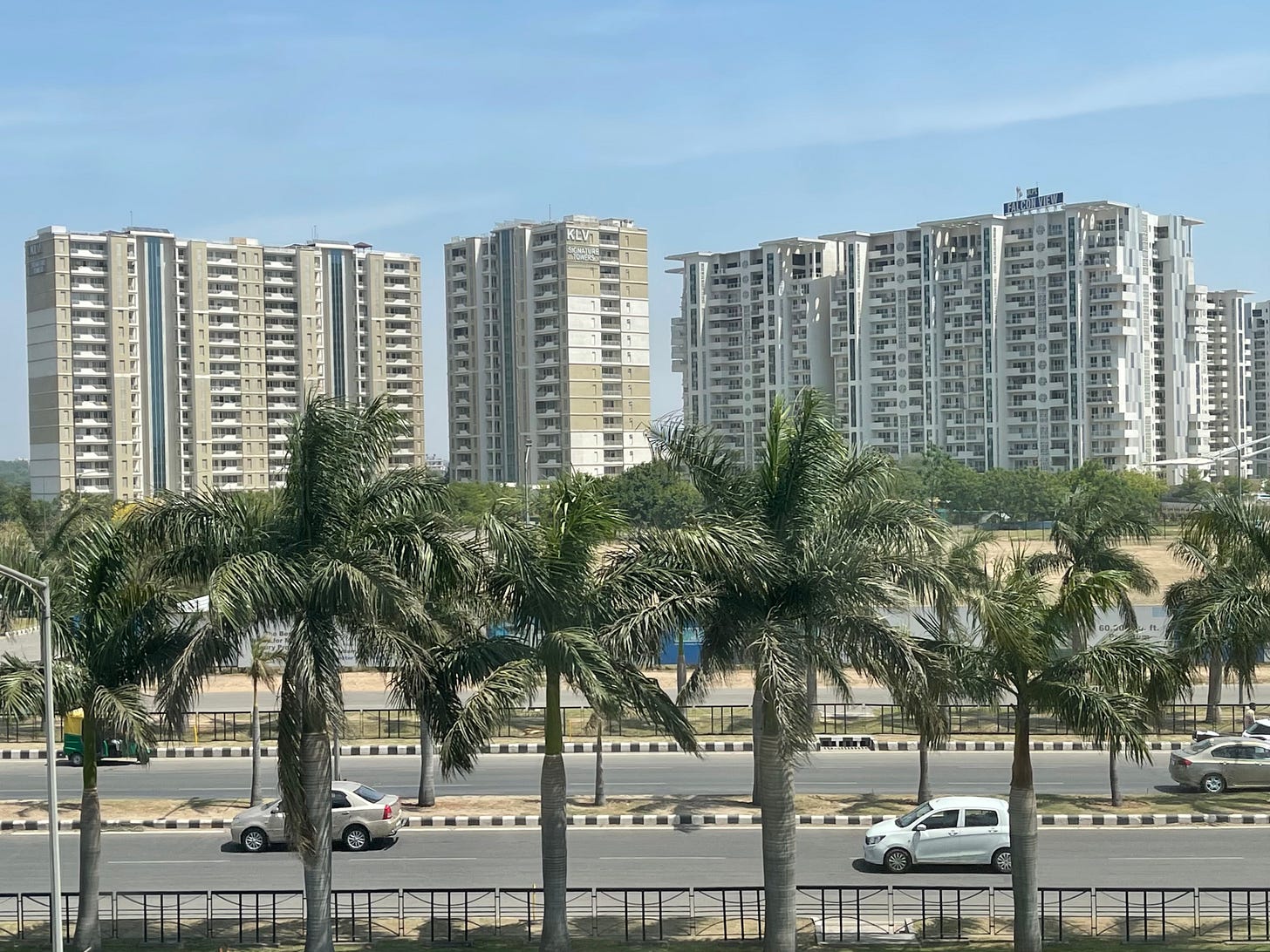EWS Housing in Punjab: A Promise That Must Not Fade Away
A commitment to inclusivity, equity, and accountability will fulfill the intent of the EWS housing scheme and reinforce public trust in sustainable urban development.
EWS Housing— Major Policy Tweak on the Anvil
The Punjab Government is actively considering plans to auction land originally earmarked for Economically Weaker Sections (EWS) housing in private projects. This move, expected to generate over ₹2,000 crore from approximately 500 acres of land, aims to fund the implementation of EWS housing schemes in other locations, according to a recent report in The Tribune.
The proposal, currently under consideration by senior bureaucrats, will require formal approval from the State Cabinet. It comes against the backdrop of nearly three decades of ineffective enforcement of the EWS housing provision. This provision has been a key component of the Punjab Apartment and Property Regulation Act, 1995, since its inception on July 1, 1995 but has been honoured more in breach than in observance.
Historical Context and Implementation Challenges
The provision for EWS housing has been a longstanding component of land grants under the Punjab Apartment and Property Regulation Act, 1995. Similar, and even more progressive provisions, have been incorporated into various mega projects. However, despite the passage of almost 30 years, hardly any units have been allotted at the reserve price to EWS members.
A Thoughtful Approach to Auctioning EWS-Reserved Land
The proposed auction of land reserved for Economically Weaker Sections (EWS) housing offers the Punjab Government a significant financial opportunity, estimated at ₹2,000 crore. This infusion of funds, whether utilized as working capital or a windfall capital receipt, could play a pivotal role in addressing various development priorities, including the fulfillment of the EWS housing mandate. However, several factors warrant careful consideration to ensure the auction aligns with the broader social objectives of inclusivity and equity.
1. Addressing Potential Delays in Allotment
The auction process may inadvertently lead to delays in providing housing to EWS beneficiaries, given the time required for the consequential land assembly, acquisition, and subsequent construction. To mitigate this, the government should establish clear timelines for reinvestment of the proceeds into alternate EWS housing projects and ensure expeditious planning and execution to minimize delays.
2. Ensuring Transparency in Beneficiary Selection
A transparent and equitable mechanism for selecting EWS beneficiaries is essential to maintain public confidence. The government should develop a well-defined policy that clarifies eligibility criteria, whether based on a draw of lots, income thresholds, or prioritization of original inhabitants of the affected areas. Publicizing these criteria through official notifications would further enhance transparency and accountability.
3. Reassessing Floor Rates
The proposed floor rate of ₹4 crore per acre should be re-evaluated in the context of recent benchmarks, such as rates achieved in GMADA e-auctions for group housing sites, where the rates achieved even with modest FAR of 1.5 to 2.0 were many times higher. A competitive and market-aligned valuation would not only maximize financial returns but also address concerns of undervaluation, reducing the likelihood of public controversies or accusations of favoritism.
4. Navigating Legal and Constitutional Considerations
Auctioning land reserved for EWS housing raises potential legal and constitutional questions. The government must ensure that the process adheres to statutory requirements and the spirit of the Punjab Apartment and Property Regulation Act, 1995. Any changes to land use or allocation should be supported by comprehensive legal reviews to prevent future litigation or challenges.
5. Safeguarding Inclusivity and Preventing Segregation
Relocating EWS beneficiaries to alternate sites must be done with careful planning to avoid socio-economic segregation. Housing projects should be integrated into urban settings with access to employment opportunities, infrastructure, and amenities. Policies should actively prevent the creation of isolated "ghettos" and promote inclusivity in urban planning.
6. Reinforcing Public Trust and Accountability
Public trust is critical for the success of any policy decision. The government should communicate a clear reinvestment strategy for the proceeds, detailing how they will be utilized to meet the housing needs of EWS households. Establishing an independent oversight mechanism to monitor fund utilization and project implementation would further bolster confidence in the scheme.
Punjab's Track Record in Affordable Housing: A Call for Improvement
Punjab's performance in affordable housing schemes over the past decade has been underwhelming, raising questions about the state's commitment to providing housing for its middle and lower income groups as well as the economically weaker sections. Despite receiving more funds than neighboring Haryana under the Pradhan Mantri Awas Yojana-Urban (PMAY-U), Punjab's progress has been slow. Between 2015-16 and October 2020, the state had 1,32,235 houses sanctioned with a fund allocation of ₹1,825.78 crore. However, only 28,446 houses were completed out of the 96,283 approved, reflecting a dismal implementation rate of less than 30%.
This sluggish pace undermines the objectives of such critical initiatives and risks alienating the economically vulnerable populations who depend on these schemes for improved living conditions and social mobility. The decision to auction land originally reserved for EWS housing adds another layer of concern, potentially diverting focus from the already struggling MIG/ LIG and EWS housing agenda. If urgent measures are not taken to address these shortcomings, Punjab's reputation for delivering social welfare programs may suffer lasting damage.
Summing Up
The proposed auction of EWS-reserved land has the potential to provide a much-needed financial boost to the Punjab Government, but its success hinges on thoughtful execution. By addressing potential delays, ensuring transparency, aligning valuations with market realities, and adhering to legal and social obligations, the government can achieve a balanced approach that safeguards the rights and needs of economically weaker sections. A commitment to inclusivity, equity, and accountability will not only fulfill the original intent of the housing scheme but also reinforce public trust in the government's vision for sustainable and inclusive development.




